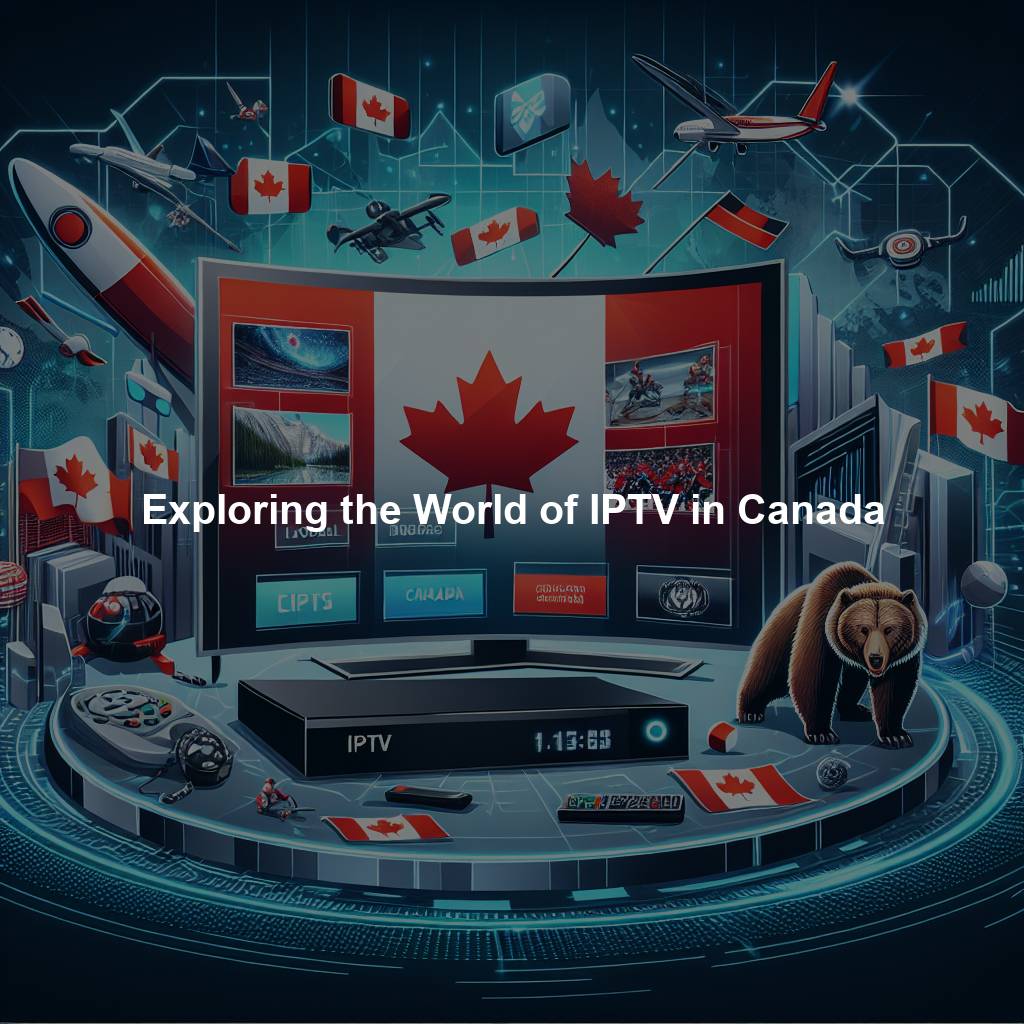IPTV, or Internet Protocol Television, has been on the rise in Canada as a popular way to access television content through the internet. This technology allows users to stream live TV channels and on-demand content over an internet connection, providing a more flexible and customizable viewing experience. In this article, we will explore the world of IPTV in Canada, looking at the technology, the evolution of services in the Canadian market, and the benefits and challenges that come with it.
An Overview of IPTV Technology in Canada
IPTV technology in Canada works by delivering television services over an internet connection, rather than traditional cable or satellite methods. This allows for greater flexibility in terms of content access and viewing options, as users can watch TV on various devices such as smartphones, tablets, smart TVs, and computers. With the increasing availability of high-speed internet across Canada, IPTV has become a popular choice for consumers looking to cut the cord and move towards more streamlined and customizable TV options.
The Evolution of IPTV Services in the Canadian Market
The Canadian market for IPTV services has evolved rapidly in recent years, with many traditional TV providers offering their own IPTV options to compete with online streaming services. Companies like Bell, Rogers, and Telus have all launched IPTV services that offer a mix of live TV channels, on-demand content, and exclusive programming. Additionally, there are also independent IPTV providers in Canada that cater to niche markets and offer specialized content packages for different demographics.
Exploring the Benefits and Challenges of IPTV in Canada
One of the key benefits of IPTV in Canada is the flexibility it offers in terms of content access and viewing options. Users can choose from a wide range of channels and on-demand content, and often have the ability to customize their subscriptions to fit their viewing preferences. However, one of the challenges of IPTV in Canada is the potential for service interruptions and buffering issues, especially during peak viewing times. Additionally, the legal landscape for IPTV in Canada is still evolving, with some providers facing scrutiny over copyright infringement and unauthorized distribution of content.
As IPTV continues to grow in popularity in Canada, it will be interesting to see how the technology evolves to meet the changing needs of consumers. With its flexibility and customizable options, IPTV is likely to remain a popular choice for those looking to access television content in a more convenient and cost-effective way. However, as the market continues to expand, providers will need to address challenges such as service reliability and legal compliance to ensure a smooth viewing experience for users.
You might be interested in learning more about how Internet Protocol Television (IPTV) works. Check out this article on IPTV on Wikipedia for a deeper dive into the technology behind IPTV services. Additionally, if you’re curious about the evolution of television services in Canada, you may want to explore the history of broadcasting in Canada on Wikipedia. It’s fascinating to see how television has changed over the years in the Canadian market.
